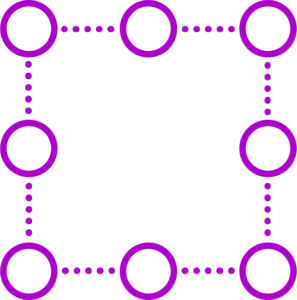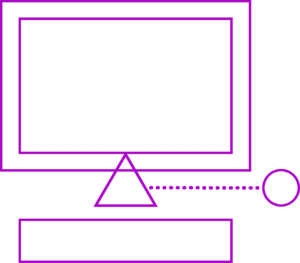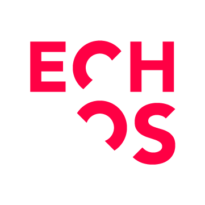Learning and training has changed dramatically in the past two years. The adoption of online learning experiences has doubled due to the pandemic, however as things continue to evolve in 2021, the projected growth of demand for online courses is only going to increase. According to a report released by Global Market Insights the global market for online learning is going to be 1.5 trillion by 2027.
This projection is exciting for organisations who are either currently offering online learning or are planning on entering the market. At Echos we have been delivering completely digital learning experiences well before the pandemic. However, since early 2020 we have also invested in innovating our offerings to meet current and future learning needs in the design industry.
With the increase in remote learning opportunities, online courses have evolved. Its enthusiastic adoption has led to advances in technology, improved user experience, and appreciation of the power of this type of learning and training. Online courses have gone from being an undervalued option in the learning and training community to the norm for many learners around the world. Recently we released one of our biggest international offerings yet, The Design Leadership Masterclass course. This course is currently taking place worldwide, in 12 global masterclass sessions, 12 local hands on training workshops as well as providing international networking opportunities for students. This program was a first of its kind for Echos and one of the first in the world to gather top design leaders to teach design leadership globally.
We would like to share our learnings and insights from creating this course and delivering it on an international scale. Our recommendations are to create a visual system, develop an iterative mindset and to never underestimate the value of building a global learning community.
Design A Visual System
Launching an international course across multiple time zones, 3 languages (English, Portuguese, and Spanish) means that the visual component of this masterclass series was critical to convey meaning regardless of the region or language.
Developing a visual design system provided a guiding framework for creating assets for the course quickly and efficiently. A design system is a series of components that can be reused in different combinations. Design systems allow for managing a large design project at scale.
Paulo Armi, Visual Designer at Echos says, “I think creating a visual design system for the product has been very effective. It not only made people’s lives easier, but it has also saved time and effort compared to having custom-made visual materials for different touchpoints: landing page, ebooks, syllabus, social media, and marketing collateral.”
Being able to scale well and consistently was very important for this project. The complexity of communicating with audiences, instructors and participants worldwide demanded a simple approach with clear and consistent design.
“Because of the scale of the project, the system was designed to work like a guideline for key visual assets that are flexible enough to allow us to reuse them. It is very customisable, allowing different members of our international design team to bring their unique styles into play and still keep the overall look and feel consistent.”
To assure that quality is high across all elements it is important to have a clear design vision from leadership. A vision that aligns the overarching look, feel and messaging is achieved through the leadership team taking creative ownership of the project.
One of the biggest learnings in creating a visual system for an international course is that flexibility is key. When working with a large team of international scope it is imperative to develop a system that can evolve along with the various types of local course content and it’s instructors.
Paulo explains the importance of “having to rethink and change some of its components on the fly.” However, with the power of creative ownership and direction the visual system developed in a way that it could work in all markets with all stakeholders.
Develop An Iterative Mindset
From a product design perspective creating an international course has its unique challenges and some interesting new learning opportunities. Good product design is a process of developing and iterating products that solve users’ problems or address user’s specific needs in different markets. When developing an international course there are two different users, the instructors and the participants. It is important to manage the expectations and meet the needs of both.
Echos Service Designer, Daniel Ieraci shares, “Given this is a global program with the design leader instructors and participants from every corner of the globe, the biggest challenge had to do with managing our internal processes and external requirements from leaders. With so many moving parts we had to develop new internal systems and ways of working to keep track of and manage every aspect of the program’s development.”
The solution to successfully managing a product with so many moving parts and individuals was developing an iterative mindset. Daniel explains, “It was important for us to make sure we constantly re-evaluated our processes and make quick decisions on how to fix bottlenecks that occurred in the workflow.”
This iterative mindset also extended to looking into spaces that had previously not been explored. To truly iterate and make a product go from good to delightful requires looking at the many small details that add up to the larger experience. After managing the role out of a worldwide product Daniel suggests making “sure to build the ability to redesign some otherwise-forgotten touch points early on.”
Design Leadership Advisor Lunna Pigatto agrees, “The more I talk to clients and the product managers behind this program, the more I understand how to iterate the way I communicate the value it brings. I can personalise it according to people’s different backgrounds and needs.”
The Value of A Global Community
One of the biggest learnings in creating a global masterclass series was the value learners get from an international community. Although learning is primarily done alone, it is also a social and collaborative process. Learners need to have in depth conversations to gain further insights into the content. And they also need peers who can go on the journey with them. Creating an interconnected ecosystem of global collaboration for the Design Leadership Masterclass provides access to international networking opportunities for all our participants.
As part of our product development, we listened closely to course participants’ needs to learn from different regions of the world. So, the entire course has been designed from the ground up as a networking course. Conversations that connect people around their shared learning experience occur on a slack channel. Special partnerships with design industry networking platform ADP List provides additional spaces for conversation, collaboration, and mentorship.
The Future Of Learning
The future of learning will be digital and as we have learned from building an international course, all providers in this space will have to iterate and grow. This program has been underway since July12th, and the feedback has been favourable. However, we will be building all learnings back into the product, to make it more delightful over the course of the 12 weeks. For more information on the Design Leadership Masterclass course visit the site or download our syllabus.
Article by Echos Global Design Leadership Designers, Daniel Ieraci, Paulo Armi and Lunna Pigatto
—
Follow us on social
instagram: @echosaustralia
facebook: @ECHOSaus
linkedin: @echos-innovation-lab
youtube: ECHOS Innovation Lab
spotify: Desired, the podcast
How Can We Help?
For training and Innovation Journeys in your company:
check out our in-house course offering.
____
For upcoming courses in your region: visit our website.
____
If you have a special project and would like to use Echos’ consultancy services: send us an email: contact@echos.cc
Want to speak to a real person? Call us on 1300 502 006






